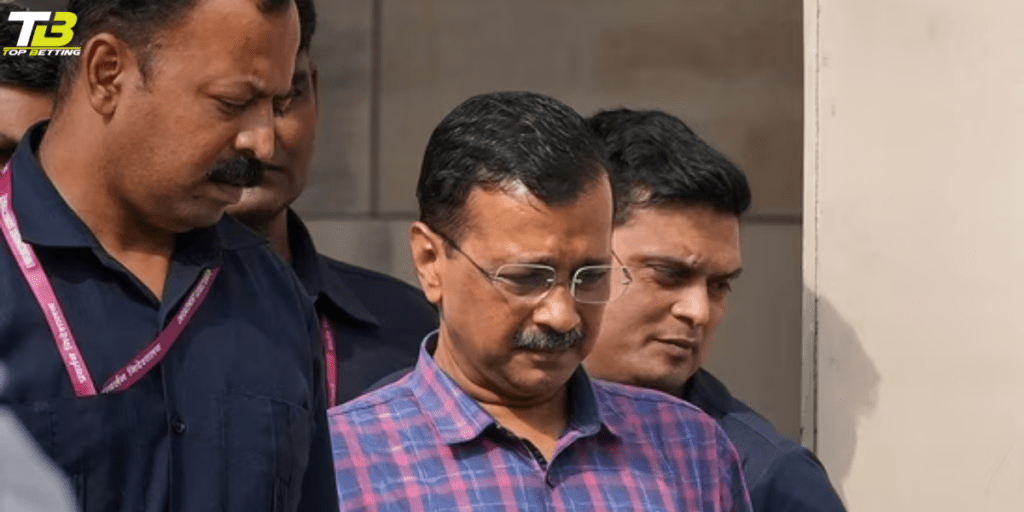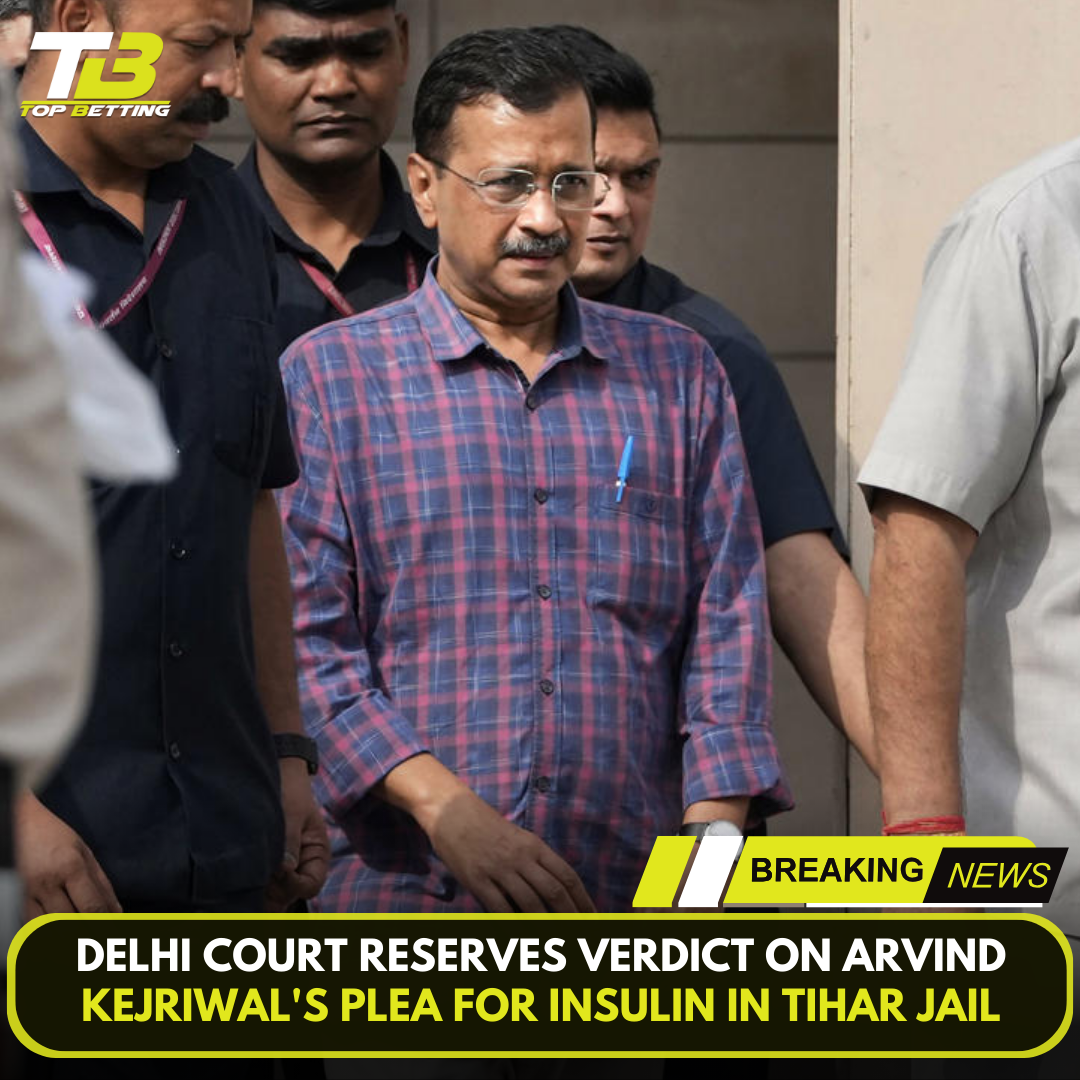
Delhi Court Reserves Verdict on Kejriwals Insulin Plea
In a significant development, the Delhi court has reserved its verdict on the plea filed by Arvind Kejriwal, the Chief Minister of Delhi, seeking insulin administration and daily video consultations with his doctor while in Tihar Jail. Kejriwal, who is under judicial custody in a money laundering case related to the Delhi liquor excise policy, has been suffering from acute diabetes and fluctuating blood sugar levels. This article delves into the details of the case, the plea filed by Kejriwal, and the subsequent developments surrounding the matter.
Background
Arvind Kejriwal, known for his active role in Delhi politics, has been facing legal challenges in recent times. The money laundering case related to the Delhi liquor excise policy has landed him in judicial custody. However, his health concerns have come to the forefront as he battles acute diabetes. Kejriwal’s wife, Sunita Kejriwal, has also been seeking permission to join the video consultations with Dr. Ravichandra Rao, the diabetes expert overseeing Kejriwal’s treatment.
The Plea for Insulin Administration and Video Consultations
Kejriwal’s plea to the Delhi court sought two primary directives from the Tihar jail authorities. First, he requested the administration of insulin to manage his acute diabetes effectively. Second, he sought permission for daily video consultations with his doctor to ensure proper medical guidance. The plea highlighted the success of the ‘Insulin Reversal Programme’ that Kejriwal had been undergoing under careful medical supervision before his arrest.
According to the plea, the programme, which involved continuous monitoring and adjustment of medication, diet, and exercise, helped Kejriwal transition from exogenous insulin to oral medication. However, due to his arrest and subsequent inability to follow the programme, his health condition deteriorated. The plea emphasized the need for immediate medical attention to prevent any further complications.
Court Reserves Verdict on the Plea
Following deliberations from both parties, the Delhi court has deferred its judgment on Kejriwal’s plea. The anticipated decision, slated for announcement on Monday, April 21, will ascertain the legal obligation of Tihar jail authorities to provide insulin to Kejriwal and facilitate daily video consultations with his physician. This ruling holds profound implications not only for Kejriwal’s health but also for the broader discourse surrounding his ongoing legal ordeal.
The verdict’s outcome will likely reverberate across political and judicial spheres, shaping perceptions of individual rights within carceral settings and underscoring the intersection of health and justice in high-profile legal battles like Kejriwal’s. As stakeholders await the court’s pronouncement, the case remains emblematic of broader societal debates concerning access to medical care and due process within the criminal justice system.
Allegations and Counterclaims
The plea filed by Kejriwal comes in the wake of allegations made by the Aam Aadmi Party (AAP) and its leaders regarding the denial of insulin and home-cooked food to the Chief Minister in Tihar jail. Atishi, a Delhi cabinet minister, alleged a conspiracy to harm Kejriwal’s health by denying him necessary medication. However, these allegations have been refuted by the prison authorities, who maintain that Kejriwal is receiving adequate medical care.
Delhi Lt Governor VK Saxena expressed grave concern over the allegations and ordered the director general of prisons to submit a factual report on the matter within 24 hours. While the prison administration falls under the jurisdiction of the AAP government, the Lt Governor assured that no compromise would be made regarding Kejriwal’s health.
Public Outcry and Support
The recent plea filed by Kejriwal and the ensuing allegations have ignited widespread public outcry and garnered a groundswell of support for the Chief Minister. Across the political spectrum, activists, citizens, and leaders have raised their voices in concern over the reported denial of essential medical treatment to an individual in judicial custody. The case has reignited discussions surrounding the rights and welfare of incarcerated individuals, particularly those grappling with pre-existing health conditions.
The outcry underscores broader societal anxieties about the treatment of prisoners and the efficacy of the justice system in safeguarding their well-being. It has prompted calls for greater transparency and accountability within correctional facilities, urging authorities to prioritize the health and dignity of all detainees. Additionally, the incident has spurred renewed scrutiny of existing protocols for medical care within the criminal justice system, with demands for reforms to ensure equitable access to healthcare for all individuals, regardless of their legal status.
Amidst the fervor of public support, the case serves as a poignant reminder of the ongoing struggle to uphold human rights and justice for vulnerable populations. It underscores the importance of continuous advocacy and activism in holding institutions accountable and striving towards a more just and compassionate society.

Conclusion
The Delhi court’s pending verdict on Arvind Kejriwal’s plea for insulin administration and video consultations in Tihar jail has garnered significant attention. As the Chief Minister battles acute diabetes, the court’s decision will determine the course of his treatment and set a precedent for the treatment of individuals with health conditions in judicial custody. The outcome of this case will be closely watched not only by Kejriwal’s supporters but also by those concerned with the rights and welfare of prisoners in India.











